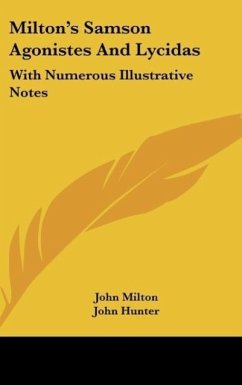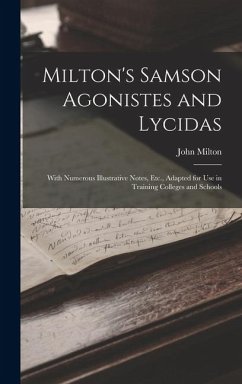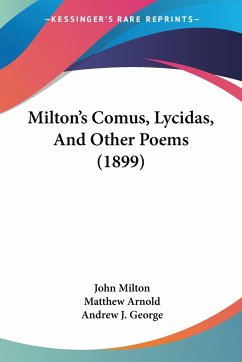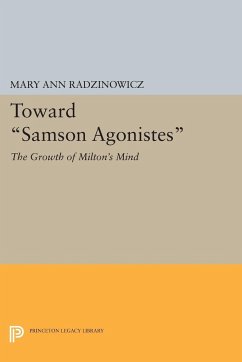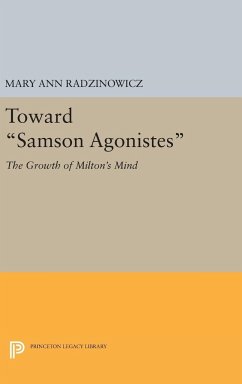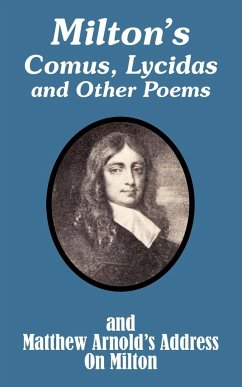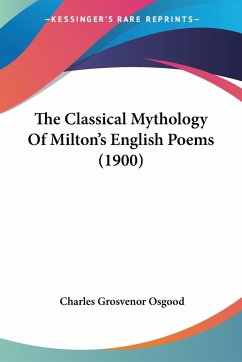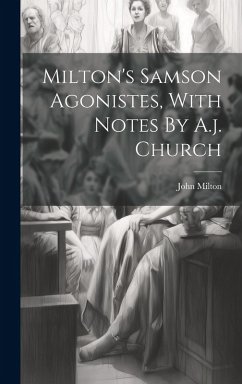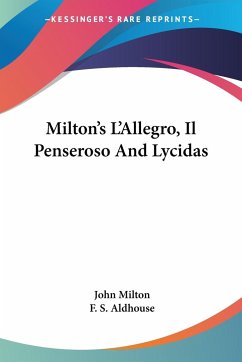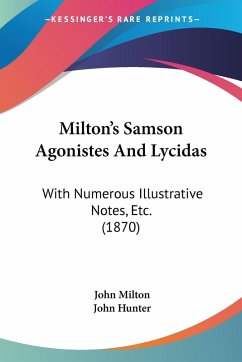
Milton's Samson Agonistes And Lycidas
With Numerous Illustrative Notes, Etc. (1870)
Herausgeber: Hunter, John
Versandkostenfrei!
Versandfertig in 1-2 Wochen
21,99 €
inkl. MwSt.
Weitere Ausgaben:

PAYBACK Punkte
11 °P sammeln!
Milton's Samson Agonistes and Lycidas: With Numerous Illustrative Notes, Etc. is a book published in 1870 that features two of John Milton's most famous poems, Samson Agonistes and Lycidas. The book contains numerous notes and explanations that provide context and insight into the poems, making them more accessible to readers. Samson Agonistes is a dramatic poem that tells the story of Samson, a biblical hero who is betrayed by his lover and blinded by his enemies. Lycidas, on the other hand, is a pastoral elegy written in memory of Milton's friend Edward King, who drowned at sea. The book is ...
Milton's Samson Agonistes and Lycidas: With Numerous Illustrative Notes, Etc. is a book published in 1870 that features two of John Milton's most famous poems, Samson Agonistes and Lycidas. The book contains numerous notes and explanations that provide context and insight into the poems, making them more accessible to readers. Samson Agonistes is a dramatic poem that tells the story of Samson, a biblical hero who is betrayed by his lover and blinded by his enemies. Lycidas, on the other hand, is a pastoral elegy written in memory of Milton's friend Edward King, who drowned at sea. The book is a valuable resource for students of literature and anyone interested in exploring the works of one of England's greatest poets.Adapted For Use In Training Colleges And Schools.This scarce antiquarian book is a facsimile reprint of the old original and may contain some imperfections such as library marks and notations. Because we believe this work is culturally important, we have made it available as part of our commitment for protecting, preserving, and promoting the world's literature in affordable, high quality, modern editions, that are true to their original work.



